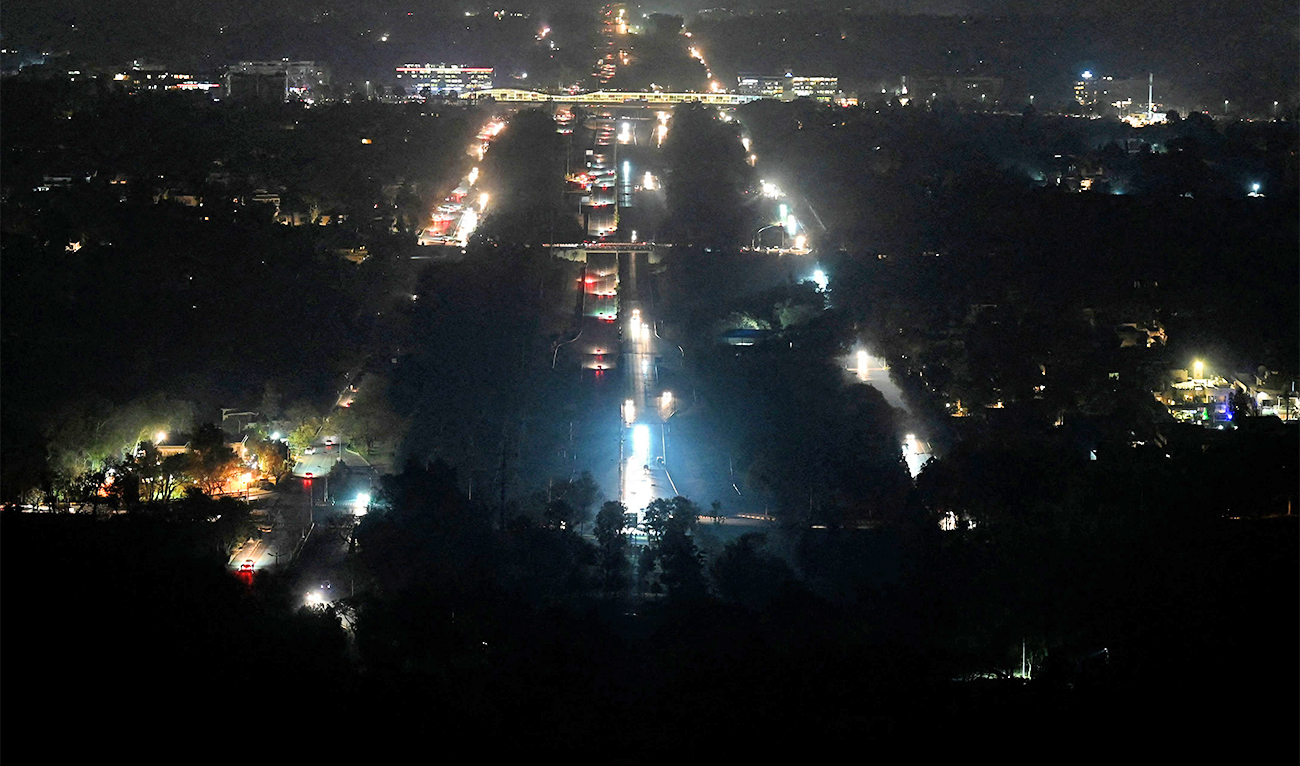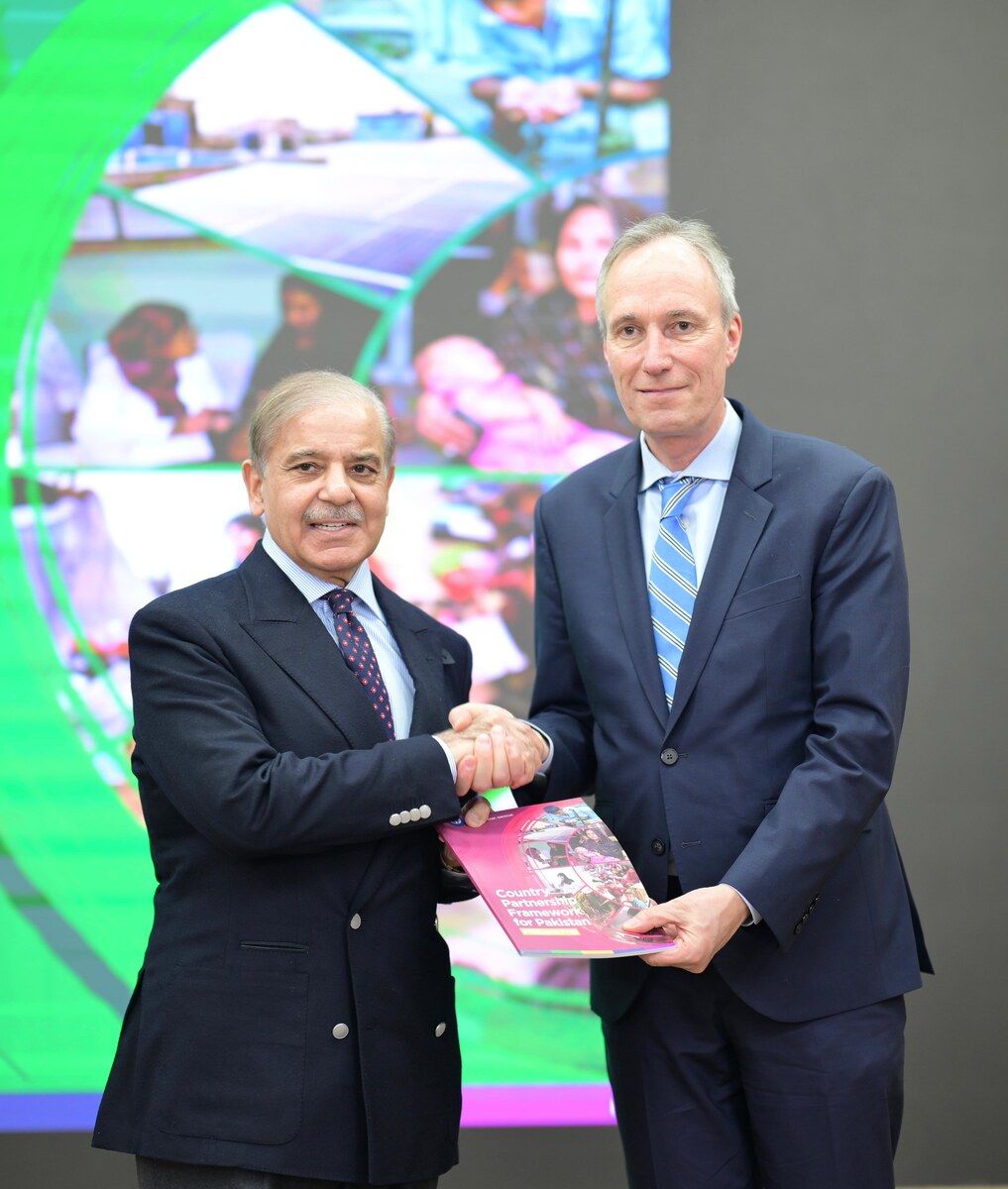ISLAMABAD: Over twelve hours after a nationwide power failure struck Pakistan in the latest breakdown of a perennially troubled national grid, electricity began to return to parts of the capital on Monday while a majority of the country’s 220 million people remained in the dark.
Pakistan’s energy minister Khurram Dastgir Khan said earlier in the day that power would be restored “by tonight” as the government scrambled to fix a breakdown that has raised frantic questions about infrastructural weakness and the urgent need to upgrade an aging grid.
While Pakistan has enough installed power capacity to meet demand, it lacks adequate resources to run its oil-and-gas-powered plants. The energy sector is also heavily in debt and cannot afford to invest in new infrastructure and power lines.
For Pakistanis, Monday’s nationwide loss of power was a frustrating continuation of hardships brought by an economy in a tailspin for months, with foreign reserves running out, inflation at decades-high levels and industrial growth slowing down.

An aerial view shows Pakistan's capital Islamabad during a nationwide power outage on January 23, 2023. (AFP)
In Islamabad, the capital, and the eastern city of Lahore, citizens lined up at shops on Monday to buy battery-powered lights and candles.
Parvez Malik, a 76-year-old lawyer, said candles and rechargeable lamps were sold out at all major grocery stores in Lahore.
“I finally found two lights and they were for fifteen thousand each,” he said, quoting the price of lights that usually cost around Rs2,000.

An aerial view shows Pakistan's capital Islamabad during a nationwide power outage on January 23, 2023. (AFP)
At a market in Islamabad’s elite F-6 sector, shopkeeper Adil Khan said he had not sold much all day and all that customers wanted was battery-powered lights.
“Most customers came for rechargeable lights but as compared to usual days, we had no business,” Khan said. “We have suffered huge losses because of the power outage for the whole day. The big businesses are pouring oil in generators and running their businesses but the real affectees are small businessmen like me.”
Saif Raj, who owns a computer shop in Islamabad’s Blue Area, said most shops had closed hours earlier on Monday evening.
“The market usually closes at 9pm but it’s 7pm and most of the shops have closed,” he told Arab News.
In a statement released on Monday morning, Energy Minister Khan said as part of an energy saving move, electricity was turned off across Pakistan during low usage hours overnight to conserve fuel. Technicians were unable to boot up the system all at once after daybreak, he added.
“There is no major fault … In winter the system is closed due to low demand at night and is switched on in the morning,” Khan said.
“Today morning, when the system was switched on, a huge breakdown occurred due to a drop in frequency between Jamshoro and Dadu,” he added, referring to two southern regions.

Motorcyclists and cars drive on a road during a national-wide power breakdown, in Lahore, Pakistan, on January 23, 2023. (AP)
Power began to return in parts of Islamabad after 8pm, but was still out in Lahore. In Karachi, Pakistan’s commercial capital and home to the stock exchange, the central bank and a giant port, a spokesperson for the K-Electric supply company said power was being restored “gradually.”
“Restoration of power in most parts of Karachi is expected in next three to four hours,” he said in a statement, adding that K-Electric was working with the National Transmission and Dispatch Company (NTDC) to restore power from the national grid.
Residents in most parts of the city said they were still waiting for power over thirteen hours after the outage.
Prime Minister Shehbaz Sharif ordered an investigation into the breakdown and summoned an “immediate report” from the energy minister.
“Why did such a massive crisis of electricity arise?” the PM was quoted as asking in a statement. “Those responsible should be identified ... The difficulties of masses are intolerable.”

An aerial view of Pakistan's southern city of Karachi during a nationwide power outage on January 23, 2023. (AN photo)
Monday’s outrage reminded of one in Pakistan’s southern regions in October, when it took a whole day for power to be restored in major urban centers like Karachi, Hyderabad, Quetta and other areas of the Sindh and Balochistan provinces.
The outage was also reminiscent of a massive blackout in January 2021, attributed at the time to a technical fault in the country’s power generation and distribution system.
Chaudhry Amin, the chief executive of the Lahore Electric Supply Company (LESCO), which supplies power to some of Pakistan’s most populous cities in Punjab province, said in the afternoon electricity would be restored in Lahore and its adjoining areas “soon.”
He confirmed that all LESCO grid stations had tripped, “depriving industrial, commercial and domestic consumers of electricity.”
The Orange Line Metro Train service was also suspended in Lahore, depriving millions of commuters of their usual mode of public transportation.
A spokesperson for the Pakistan Civil Aviation Authority (PCAA) said airports were not facing any power issues while the national highways and motorway police said traffic signals in most areas of the country were not working.
“There are unconfirmed reports of restoration varying from 15-20 hours,” a statement by the highway police said. “If electricity is not restored until darkness, keeping in mind the law and order situation, kindly make sure your car and house doors are locked properly to avoid any incident.”
At a commercial area in Islamabad, Malik Faisal, who owns a plywood business, said there was no work all day and he was out with a friend as there was no electricity at home.
“I read a media report yesterday that 70 percent people want to go abroad [leave Pakistan] and from today, I am also among those 70 percent,” Faisal told Arab News. “I called all my friends today that we also need to move away somewhere because we have no future here and neither do our families.”
- With inputs from Naimat Khan in Karachi

















